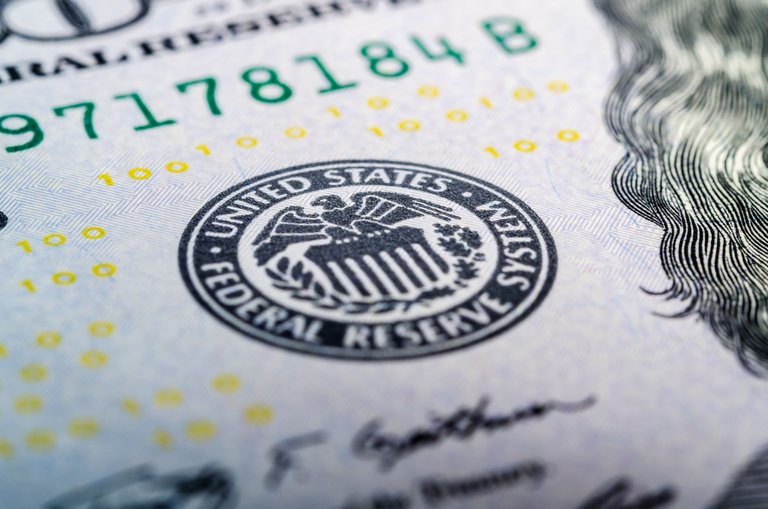
Let me start with this; I'm not an economist, financial advisor, professional investor, or trained accountant. I have no business making recommendations on what you should or shouldn't do with your hard earned money. I'm just looking at this purely from a practical standpoint of what I can do to create wealth.
One of the things I learned when launching my first business was the importance of having a product or service that could bring value to an entity. If I were not able to provide value, then it would only be a matter of time before people would not purchase my product or service any longer. Mainly, my product or service would have to solve a problem. With enough marketing, you can certainly sell, but the realization of that product or service would show it's true colors.
As a marketer, I've become less interested in helping companies market products that don't solve a problem. Mostly because our days of generating and ROI are numbered. I'm only interested in marketing products or services that reduce pain or provide pleasure. That's what solving a problem does.
What Problem Are You Solving?
I've been asked this often, what is the problem that cryptocurrencies solve? Sure, they're decentralized and open source, but what does that mean for me?
Let's start with some of the high-level things we need to understand.
First, cryptocurrencies don't have any value.

This may get me hate mail, but let me explain. 1 Bitcoin does not have any value unless it's traded for something else that does. Sure, when you purchase it with Coinbase, you can have a wallet that says it's worth $10,000 USD, but it isn't. It's not worth $10,000 until it's traded for $10,000 of cash. It's not until that Bitcoin is traded for a product or service that you realize the value of that product. Technically, even when you have $10,000 of cash, it's not worth anything until you trade it for something. When you go to the marketplace, and exchange your $10,000 for a product or service, it's only at that moment that it has any value. Some may argue that $10,000 in a savings account has value because it's gaining interest. I agree. But we do have to understand that the value of that savings account and interest isn't realized until an exchange occurs (that money is spent).
So if cryptocurrencies don't have any value, why have them? Well, I'll start with this: diversification.
In my opinion, diversifying where your wealth is being stored and used is important. Not having all your eggs in one basket is crucial if something happens to one method for storing or transporting wealth.
Second, cryptocurrencies are designed to be transporting tools, not storage tools.

The value of cryptocurrencies are not tied to their trade value as much as they're tied to the value of the service they bring as a transportation-of-wealth tool. I'll explain. The real value behind cryptocurrencies is that they can be used to move wealth from one peer to another peer without the involvement of banking institutions, governments, etc. That truly decentralized transaction is also secure, and accountable because of the blockchain technology that the transaction rides on. It's a giant public accounting ledger (when talking about BTC).
Lastly, most cryptocurrencies are not controlled by any institution, government, interest rate, or board.

In the US, the value of the dollar can be changed based on a number of factors, but one of the most significant factors is by the interest rates determined by the Federal Reserve. I know I'm oversimplifying this, but I'm using this example in broad strokes to prove a point. Most cryptocurrencies out there are entirely decentralized. That means nobody controls them. The community that holds them gets to make the decisions about the particular coin together. Some examples of this are the agreements for forking (or splitting) coins into new coins with different mining characteristics. The mass of miners and exchanges all had to agree to acknowledge the split for it to take place. These forks take place to solve a problem with certain coins where the volume of the transactions exceed the time it takes to do the transactions and a backup occurs. When the transactions get backed up, it can take hours or days to confirm transactions instead of minutes.
So to get back to the question of what problem are we solving, I'll summarize those three things we need to understand to state the value proposition. The value of cryptocurrencies is in their ability to securely, and quickly move wealth from one place to another without using a bank or government.
I've witnessed this problem first hand. I work in digital marketing in the US, and I've hired contractors from other countries to work on projects. In some of these countries, you can't just pay with a credit card, or PayPal, you have to send an international wire. This involves an invoice and proof of work statement to be sent to me, a contract signed stating that I've requested the work, and that it has been completed to my satisfaction... a visit to my bank to set up an international wire to a holding bank in Paris, then to the final bank in the country where the programmer happened to live. This process takes 24 to 48 hours to get the money into the programmer's international holding bank; then he has to formally request that money to be deposited into his bank account less the international fees, banking fees, and finally government fees. This process takes about ten days for me to send him $1000.

Now, I'm not trying to get out of paying any government fees, taxes, or the like, but if I were to send him that transaction using Bitcoin, let's say, it would have been completed in a few minutes. He would be responsible for paying any taxes or government fees associated with that income personally.
That international banking system is archaic and broken. One of the cryptocurrency coins is trying to tackle the transport problem head-on. Ripple is working with banks to help become a faster, more reliable and accountable transaction method. Although, at the time of this writing about 60% of Ripple's coins are being held by Ripple's parent company, and thus it's not truly decentralized (because one entity controls 60% of the coin). But the technology that it's based on (a blockchain), is open source, and incredibly powerful.
I believe that blockchain technology is going to bring about a renaissance of global currency transparency. I think the banks and governments are going to work very hard to try to control it, but in the long run, I think the people that embrace the technology will ultimately help bring balance. I'm not sure what the future holds for cryptocurrencies, but I'd be careful with the wealth that you have tied up in your banks, as they can lock up funds whenever they deem it necessary.
I've seen articles of people with US and international bank accounts that get their assets frozen due to working with cryptocurrencies. That's scary. I'm going to choose to keep a portion of my wealth in cryptocurrencies, real estate, energy, bandwidth, as well as in long and short-term investments.

It's all about speed, security, and accountability in the future, and I think the technology behind cryptocurrencies will largely solve those problems. What do you think?
Excelente Post, tienes razón el mundo digital es apasionante y aún no hemos entendido el poder de los huasares.
Google translate in for the rescue, Thanks @rafagonzalez for the comment! The only word that didn't translate was the last word "huasares." What does that mean?
Blockchain is definitely here to say but it wont be any in the top 5. ill even go it a bit further and say it will pan out the same as dotcom where only about 5 % of all the tech companies survived. And even the top companies we see today still lost 90% of there value in a crash.The question is how long can this bubble go considering how big the tech boom was. Whats the time frame on this one considering the speed and the world market it reaches out to
Top 5 of what? I'm not sure you understand the technology. You're literally using blockchain technology right now as you read this comment on steemit. Could you unpack that a little more so I can understand your point? Thank you for your comment!
Sorry my mistake i meant to say the current top five on coinmarketcap will not be the ones that survive long-term. I strongly believe the current top five are only there by hype and first mover advantage. The major problem in this whole crypto market is how you enter and exit with fiat even if you dont want bitcoin litcoin etc. You still have to get it to exchange for the ALT coin that you want.crypto has to be in a free market for it to survive longterm.If this does not change bitcoin and coinbase are the dominos that will crash everythink . we have a dex but we need one with fiat gateway
I understand. That makes some sense. I think as cryptos become more and more mainstream, we'll require the need to exchange back to fiat less and less. I read a blog a few years ago by someone who lived for 30 days only using cryptocurrency. He was pretty much able to do it, but there were a few hiccups. I think that if that same journalist were to try it now with the advent of the BitPay card, and other options, he may just be able to pull off an entire year of living off crypto only.
I guess for me, I'm less interested in what coins they are, and more interested in that they just work easily, quickly, and securely.
Thoughts?
I think thats the key how easy fast and secure the coin is. But i think also we have to stay as decentralized as much as possible but also remember for the time being we have to sort of work along side fiat money. Until crypto is really ready for the world. ive only been on steemit a few weeks and only found out about it from reading up on bitshares and when i found out it was the same creator i opened a account straight away. Im not easily impressed in this crypto market but for me steemit is a FB killer i love it and if bitshares gets fiat gateway bye bye coindesk and all the others exchanges so we can finally have a free market and no governments closing down exchanges.
Muchas preguntas, pocas respuestas. Gran angustia la preguntas de los mil centavos.
This comment, I don't understand, even with Google Translate:
